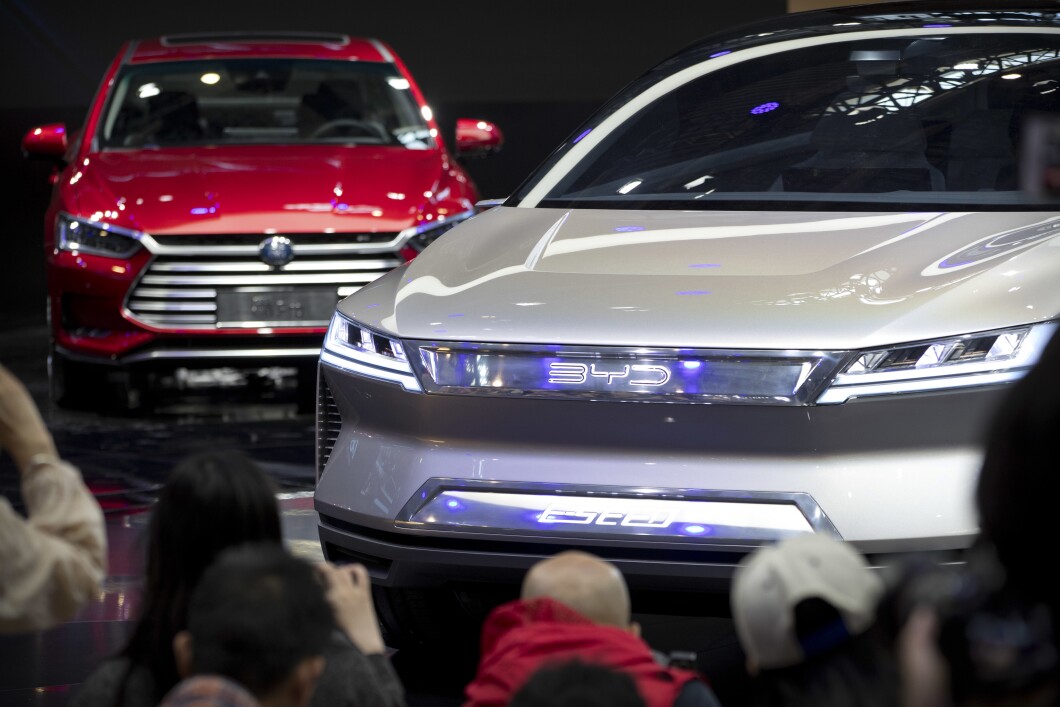
Several automakers are halting a full-steam-ahead approach to electric vehicles, citing economic uncertainties and underscoring fears regarding a slowdown of demand for the cars.
Tesla joined General Motors and Ford in voicing concerns about EV production on Wednesday. CEO Elon Musk said he was worried about the impact of high interest rates on EV car buyers and expressed hesitation about moving forward with plans for an EV factory in Mexico, according to Reuters.
UNITED AIRLINES TRIES TO SPEED UP BOARDING PROCESS WITH NEW SYSTEM
“People hesitate to buy a new car if there’s uncertainty in the economy,” Musk said on a post-earnings call where he also discussed “paycheck-to-paycheck” pressures on American workers. “I don’t want to be going into top speed into uncertainty.”
Musk’s comments came after shares in the company went down 8% Thursday, as well as shares of other EV makers. General Motors said on Tuesday that the company plans to delay production on the Chevrolet Silverado and GMC Sierra electric pickup trucks at a plant in Michigan for a year. GM cited flattening demands for EVs.

Ford said last week that it plans to cut one of three shifts at the plant that constructs the electric F-150 Lightning pickup truck. This decision came after Ford slowed its EV ramp-up in July, instead shifting its investment into commercial vehicles and hybrids. Other EV startups Lucid and Rivian were also both lower on Thursday, losing more than 3% in shares each.
“It does highlight that there could be a slowdown in EV [demand] in the near term,” Tom Narayan, global autos analyst at RBC Capital Markets, said in an interview with Reuters. “But it has more to do with pricing and affordability than a rejection of EVs.”
Musk said higher financing costs for EVs because of rising interest rates and high inflation could make consumers wary of switching away from gasoline vehicles.
“If interest rates remain high … it’s that much harder for people to buy the car. They simply can’t afford it,” Musk said, adding he would “accelerate” the expansion of the Mexico factory if interest rates come down.
President Joe Biden’s green energy agenda, which hopes to have two-thirds of new passenger cars and a quarter of new heavy trucks sold in the U.S. be all-electric by 2032, has put him at odds with organized labor groups. They argue his push for electric vehicles could come at the expense of fair wages and union jobs.
CLICK HERE TO READ MORE FROM THE WASHINGTON EXAMINER
As such, the production of electric vehicles is at the center of the United Auto Workers strike that began in mid-September. The union lodged complaints against Ford, General Motors, and Stellantis over unfair wages and pensions. Auto workers are demanding a four-day workweek with overtime pay beyond 32 hours, union representation at new electric battery plants, and the end of employment tiers.
Biden, who once described himself as the most “pro-union” president, has struggled to balance his goals on electric vehicles and clean energy without also alienating longtime allies in auto and manufacturing unions.





